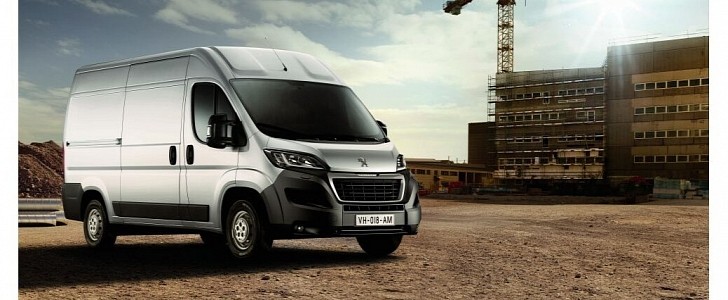As part of their existing partnership focused on light commercial vehicles, Stellantis and Toyota Motor Europe have revealed a fresh agreement to build a new large-size commercial van (LCV) for the European market, which will also have a fully electric version.
The upcoming vehicle they agreed on building together marks the third body type under the agreement and comes to complete their existing LCV lineup, which will now have a compact-, mid-, and with the new addition, also a large-size LCV.
“We are pleased that we can extend this successful partnership through the introduction of a new large-size commercial van. It represents an important addition and completes our light commercial lineup for Toyota’s European customers,” said Matt Harrison, President and CEO of Toyota Motor Europe.
“The new LCV will represent a key contribution to Toyota’s growth targets for its overall LCV lineup, alongside the Hilux pick-up, Proace and Proace City, enabling Toyota to provide a mobility solution in all segments of the LCV market.”
The new van, which is slated to arrive on the market in mid-2024, will be Toyota’s first dive ever into the large commercial vehicle segment. There is speculation that the new van model will be the successor to today’s Ducato.
What we know so far is that the LCV will be developed by Stellantis, production will take place at two Stellantis facilities in Europe, namely Gliwice, Poland, and Atessa, Italy, and the vehicle will come to the market under the Toyota brand. Not much is known in terms of tech specifications for the upcoming LCV.
Stellantis and Toyota’s partnership on light commercial vehicles goes way back to 2012. Both companies benefit from the collaboration as it allows them to harness development and production cost optimization. Under the collaboration, Toyota gains access to versions of the existing LCVs on the market also developed by Stellantis and can sell them in Europe under its own badge.
“We are pleased that we can extend this successful partnership through the introduction of a new large-size commercial van. It represents an important addition and completes our light commercial lineup for Toyota’s European customers,” said Matt Harrison, President and CEO of Toyota Motor Europe.
“The new LCV will represent a key contribution to Toyota’s growth targets for its overall LCV lineup, alongside the Hilux pick-up, Proace and Proace City, enabling Toyota to provide a mobility solution in all segments of the LCV market.”
The new van, which is slated to arrive on the market in mid-2024, will be Toyota’s first dive ever into the large commercial vehicle segment. There is speculation that the new van model will be the successor to today’s Ducato.
What we know so far is that the LCV will be developed by Stellantis, production will take place at two Stellantis facilities in Europe, namely Gliwice, Poland, and Atessa, Italy, and the vehicle will come to the market under the Toyota brand. Not much is known in terms of tech specifications for the upcoming LCV.
Stellantis and Toyota’s partnership on light commercial vehicles goes way back to 2012. Both companies benefit from the collaboration as it allows them to harness development and production cost optimization. Under the collaboration, Toyota gains access to versions of the existing LCVs on the market also developed by Stellantis and can sell them in Europe under its own badge.






